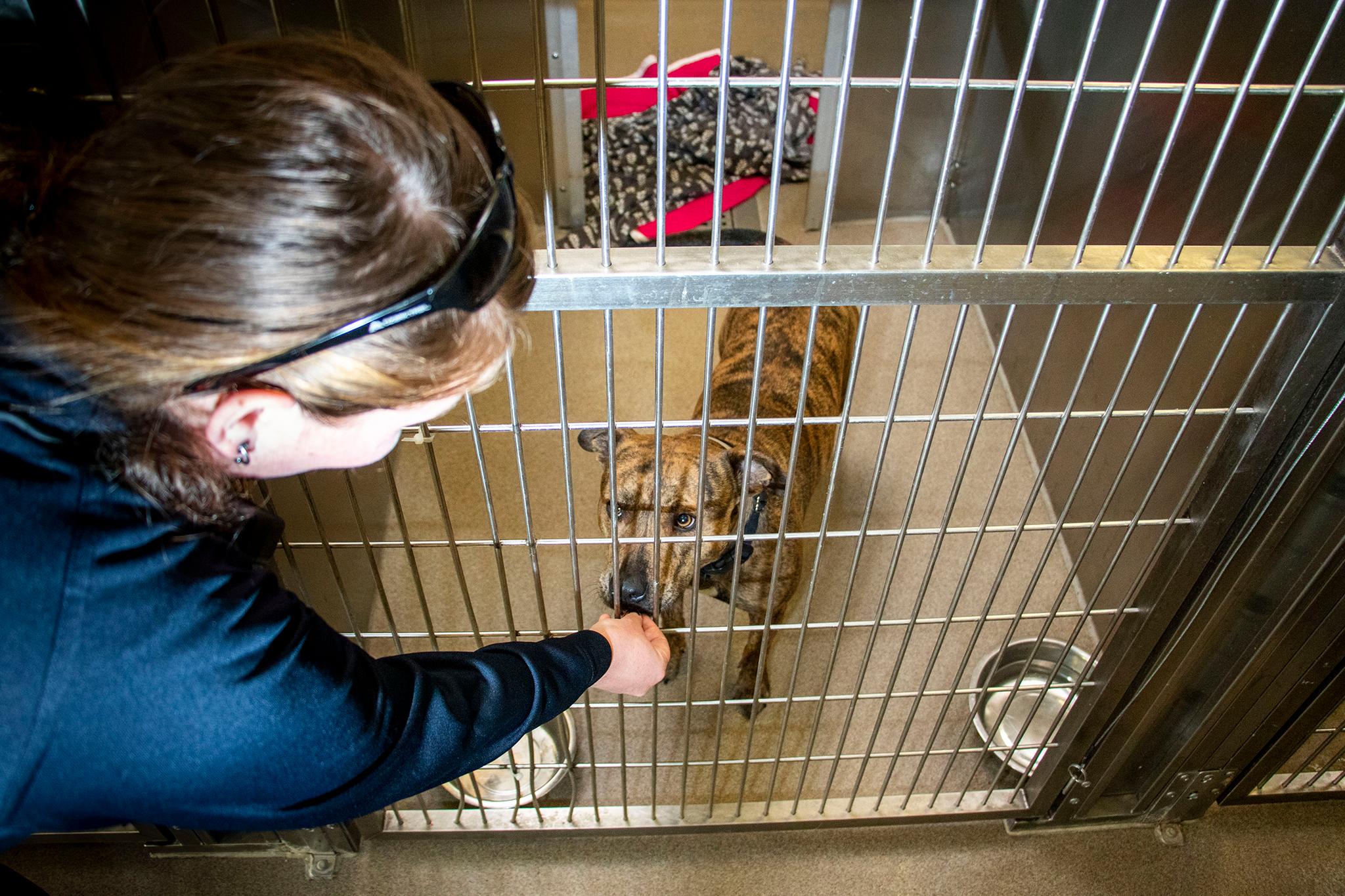The Denver City Council on Monday effectively ended the city's long-standing pit bull ban after approving major revisions to the law by giving pit bull owners a chance to register their dogs to lawfully own them in the city.
The final vote was 7-4 in favor of the bill. Councilmembers Kendra Black, Jolon Clark, Chris Herndon, Chris Hinds, Robin Kniech, Amanda Sandoval and Jamie Torres voted in favor. Councilmembers Kevin Flynn, Paul Kashmann, Debbie Ortega and Amanda Sawyer voted no.
Councilwoman Stacie Gillmore, who voted no on the bill during its first reading last week, was absent Monday. Councilwoman Candi CdeBaca was also absent.
Herndon introduced the proposal in January, billing it as a "compromise." The change leaves the 1989 ban in place but effectively ends it by letting the dogs be kept after owners get a breed-restricted license for these types of dogs.
He said his bill was data-driven and said he understands concerns about public safety, adding breed-specific bills don't make communities safer.
"We know these dogs are in the community ... if this measure passes, we will know where they are," Herndon said. "Let's do the reasonable, responsible thing."
Ortega said she remembers hearing testimony from families whose children had been killed when the ban was passed in 1989. She said the proposed change doesn't address certain issues.
"I just think that it's not broke, so why fix it?" Ortega said. "I believe that this is something that has worked."
The vote came after an hour-long public hearing. The courtesy meeting was requested by Flynn. There was an even 50-50 split for and against the bill among the more than 20 people who spoke during the hearing, though it appeared there were more people supporting the bill in the audience than those who opposed it.
Many people who supported the ban shared stories about pit bulls as affectionate pets. They pointed to data that suggested pit bulls were not any more or less likely than other dog types to bite. Shira Hereld, who lives in Arvada but used to live in Denver, is the co-founder of Replace Denver BSL. Several supporters wore pins to show support for the bill.
"The facts and the experts show us this proposed ordinance will make Denver safe," Hereld said. "Our breed-specific legislation has not worked."
Several people who spoke in opposition were Montbello residents. The area was among the neighborhoods with the highest number of calls to Denver Animal Protection over suspected pit bulls. Their comments focused on public safety and how the bill would compromise it in their communities.
Pam Jiner, co-chair of Montbello 20/20, said they are faced "with a number of animal threats" in their community. Other Montbello residents testified they regularly see pit bulls in the neighborhood.
"It's not just dogs, it is specifically pit bulls," Jiner said. "Pit bulls attack fences. They jump on top of sheds and stuff, and they're really, really threatening."
The law creates a breed-restricted license for the three types of breeds that fall under the informal pit bull description. Denver's law defines pit bulls as an American Pit Bull Terrier, American Staffordshire Terrier and Staffordshire Bull Terrier.
Under the law, owners would be required to register their dogs with Denver Animal Protection annually for the first three years. The dogs will need to be spayed or neutered.
Other restrictions with the special pit bull license include limiting only two dogs per household, requiring owners to provide two emergency contacts for the dogs, an accurate description of the pit bull and proof the dog has a microchip and current rabies vaccinations.
If the dogs show good behavior after three years, they will be eligible to get a regular dog license. The city would review data from the registrations after the first two years, which could help the council make future decisions about the law.
The new rules take effect 90 days after Mayor Michael Hancock signs the bill into law. A fee for the special license has not yet been set, though Denver Animal Protection director Alice Nightengale said she estimates the fee for the license will likely cost between $30 to $50.
This story has been updated to include how council members voted.














